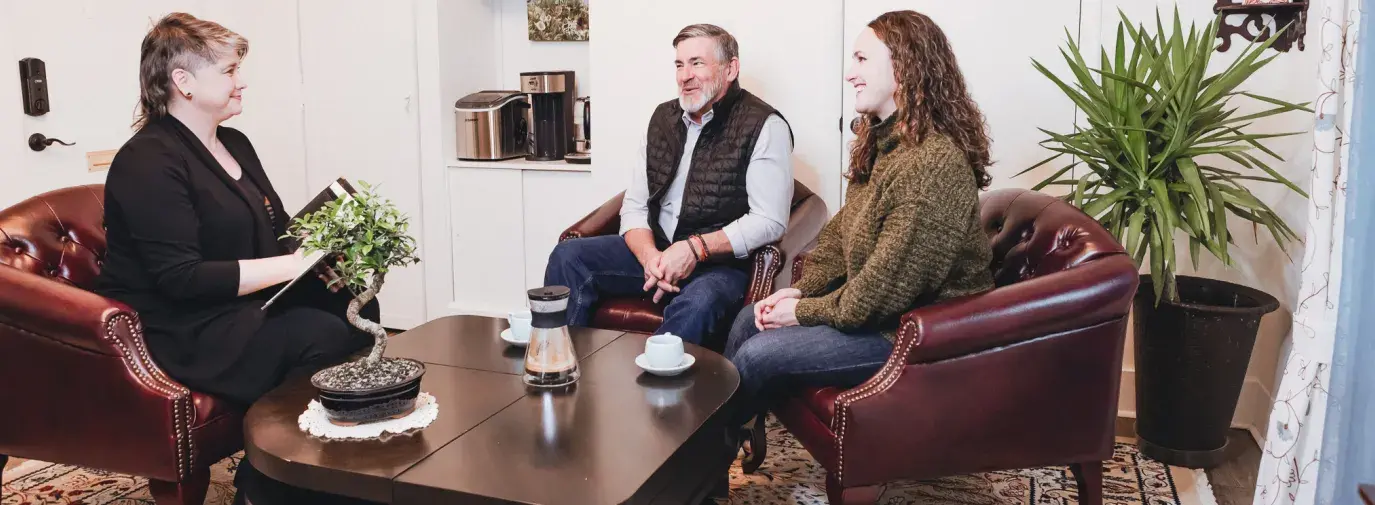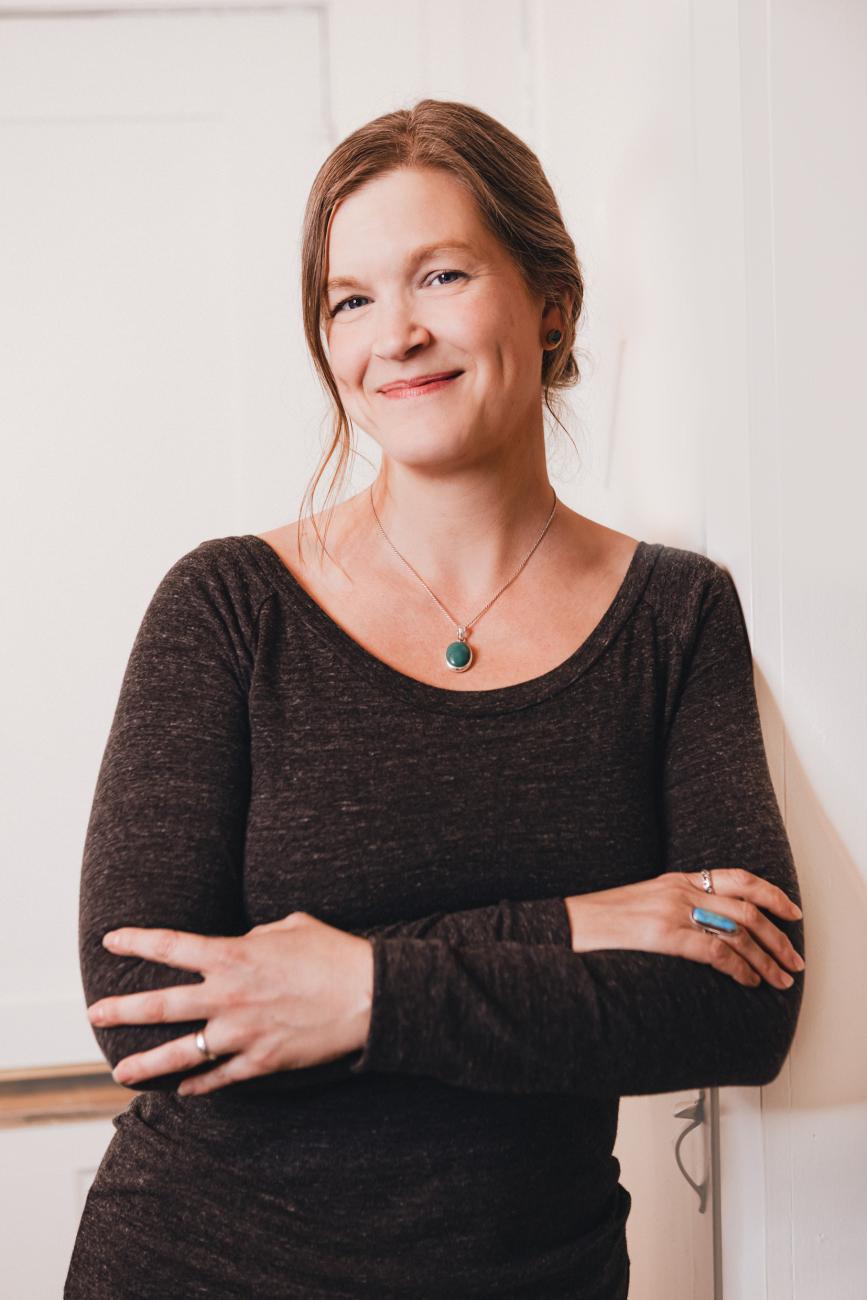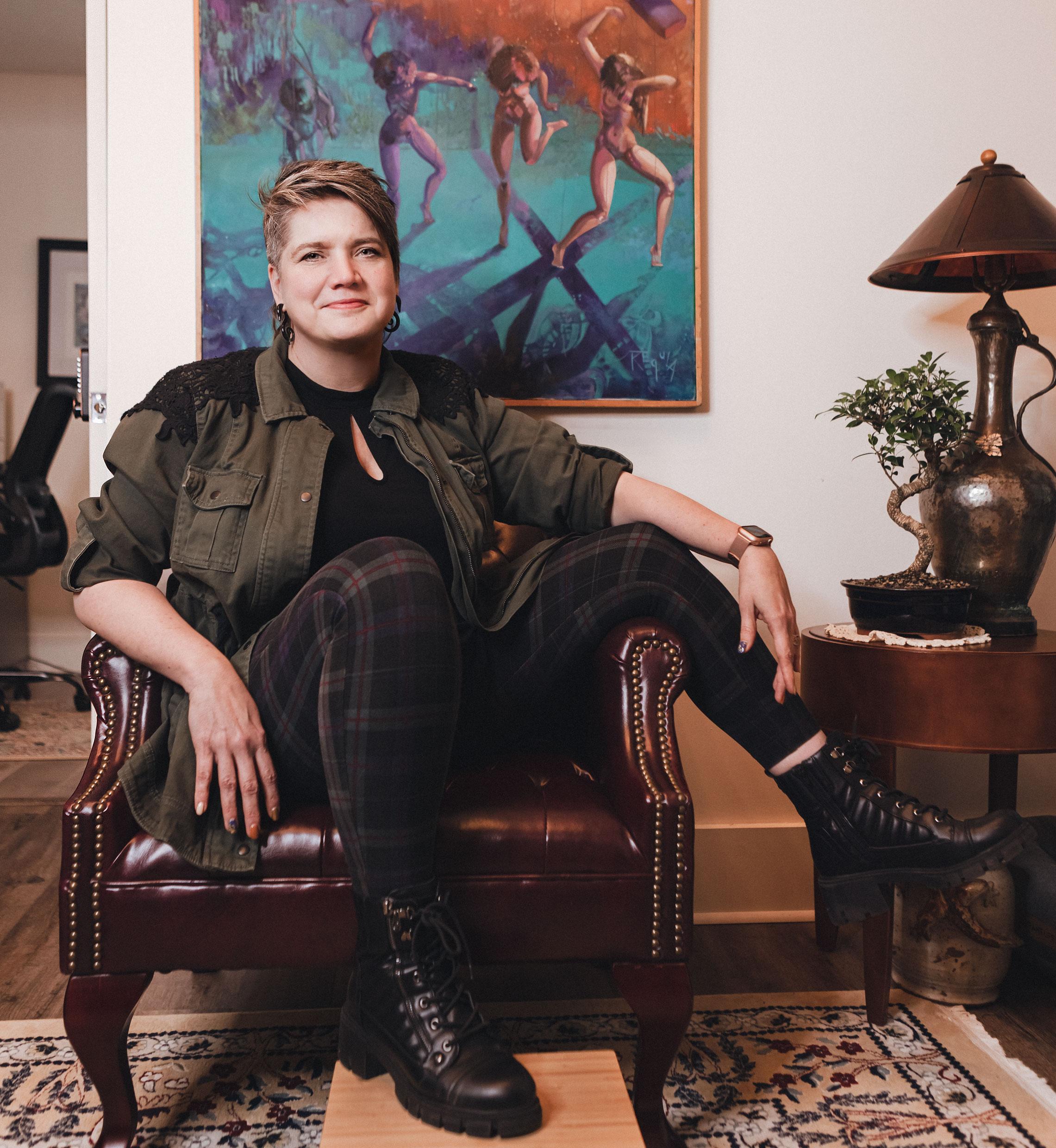
The Athens Impact Socially Responsible Investments website says it all: “After years in corporate banking, Michelle [Wilson, founder of Athens Impact and financial advisor] came to the realization that finding peace in retirement doesn't mean having the most money; it means surrounding yourself with nature, community, and those you love. Money is simply a tool to help us accomplish the things we find important.”
Wilson knows money is complicated and overwhelming—that’s why she wants to help people wield the tool as easily as possible.
She started her career in banking at 18, working as a part-time teller. Several years ago, however, she noticed banking was going in a direction she didn’t like—more machine-oriented, less people-oriented.
Now it’s her goal to financially serve people and planet, through things like individual financial advising, socially responsible investing (SRI) and environmental, social, and corporate governance (ESG) investing, shareholder activism, and more.
Help Should Not Be Conditional
When you step into the Athens Impact office, Wilson is there to help you, no matter where you are on your financial journey.
“It’s crazy to me that financial literacy is not taught in school,” Wilson laments. “When a client comes to me, the first part we go over is financial psychology—money scripts, things we learned growing up that keep us in bad financial situations. Society is set up to have us living paycheck to paycheck, and that’s not right.”
Even if that’s your situation, though, Athens Impact wants to help.
“When somebody walks in, regardless of their situation, they need to be able to get help.”
That’s why Holly Fitch, Athens Impact’s office manager, trained to be a financial coach. Wilson meets with potential clients for a consultation, but not everyone is ready to invest. If you have limited funds, for example, Wilson advises keeping your money as an emergency fund. That’s where Fitch comes in as a financial coach, which is a more affordable option, and can get you on track to investing.
The first step, Wilson says, is figuring out where money is being spent.
“What I’ve seen many times is people will work and work and work on debt,” she explains. “They’ll get out of debt and then back into debt. Savings are what help them stay out of debt. Then they can use savings in an emergency, instead of putting it on a card.”

She also recommends looking into financial community programs and for those struggling with debt, nonprofit credit counselors—not debt settlement companies, which often use language to make them seem appealing and helpful, but often take advantage of people struggling with debt.
When you find yourself in a position to invest, Wilson aims for Athens Impact to be an ethical, comprehensive way to start.
Investing Meets Activism
One of the first things investing clients do is fill out the Impact Assessment, which minutely breaks down the causes most important to you to make sure your portfolio is both representative and specific.
“I can build a custom stock index, directly related to your answers and different from anyone else’s,” Wilson says. “I can tell you why certain businesses and companies are in your portfolio, the positives and negatives, or replace it with another business so you never have to invest in a company you don’t want to.”
According to Wilson, ESG investing is becoming a “norm in the industry... because [it] reduces the risk in the portfolio,” so it’s where her work starts, not ends. Athens Impact doesn't just use company reported information to screen companies, it also relies on publicly available information, like environmental fines, to avoid greenwashing.
She doesn’t believe traditional screening methods alone can be called “socially responsible investing,” because it’s based on information from a company’s own reports—which can be manipulated and greenwashed.
Wilson’s goals don’t end with her individual clients, however. Wilson is taking a holistic approach with her business, planting seeds to not only help individuals, but to empower her community and those around her.
Athens Impact is based in Athens, Ohio—one of the poorest areas of the country. While the country’s general persons in poverty rate was 12.8% in 2021, Athens reported an average rate of 43.1% persons in poverty from 2020 to 2022.
In 2022, Athens Impact began working with a nonprofit that helps women out of abusive situations and providing a six-month financial education course to help them land on their feet. This year, Wilson hopes to transition the program to a larger audience.
Financial Advising Is About Trust
There is a lot of shame and stigma around money in the US, but Wilson believes “people should be able to come to their financial advisor and talk about whatever their family looks like and whatever financial situation they’re in.”
It’s why she’s open and candid about her activism and living as an out pansexual, polyamorous person using her financial expertise to do good.

“I try to be an example,” she says. “It can help people who are not as exposed or open, to look at me and realize it’s not so bad I don’t fit into their boxes.”
She helped start the first LGBTQ fellowship with Rotary International, and she currently serves as a member of the NAPFA DEI (diversity, equity, inclusion) committee and a co-director of the Green America JEDI (justice, equity, diversity, inclusion) committee.
“I’ve always been an activist for LGBTQ issues, so I was trying to find a way to mesh my activism with my professional background of finance, and that’s how I got into socially responsible investing.”
Wilson previously served on Equality Ohio’s board and saw firsthand the power of economics: “Without the financial piece, a lot of issues stagnate. I don’t believe companies care about anything but money, so when we attach money to issues we care about, suddenly, companies will be more aware of its own policies.”
It’s why Wilson so strongly believes in shareholder activism: “I believe shareholder activism will create cultural change, especially as younger generations get older, inherit money, and engage in socially responsible investing.”
Wilson acknowledges all of this—screening companies to understand their ESG policies, investing your money for the planet, getting your life on track financially—is hard work, but it’s work that makes a difference. It’s why she wants to help.


